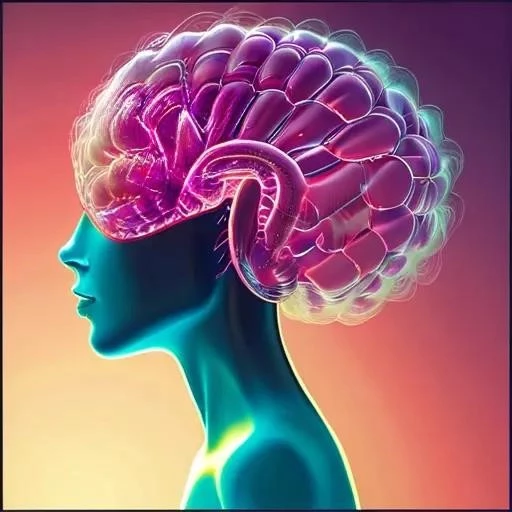
Unlocking Your True Potential: Why Your Frontal Lobe Development Age Changes Everything!
Unlocking Your True Potential: Why Your Frontal Lobe Development Age Changes Everything!
In a world constantly accelerating, where milestones are often marked by arbitrary ages, a profound scientific revelation is quietly reshaping our understanding of human maturity. For decades, the age of 18 has been widely accepted as the gateway to adulthood, granting individuals a host of rights and responsibilities. However, groundbreaking neuroscience is painting a far more nuanced picture, spotlighting the incredible journey of the human brain and, specifically, the pivotal role of the frontal lobe development age. This isn’t just about biology; it’s about redefining potential, fostering resilience, and empowering a generation to truly understand themselves.
The frontal lobe, that remarkable command center nestled behind our forehead, is not merely a collection of neurons; it’s the architect of our future, the seat of our executive functions. It orchestrates decision-making, refines impulse control, and governs our capacity for long-term planning, logic, and emotional regulation. While other brain regions, like those processing vision and motor skills, fine-tune during childhood and adolescence, the prefrontal cortex—a critical component of the frontal lobe—remains a work in progress, meticulously sculpting itself well into early adulthood. This protracted maturation period, often extending into the mid-20s, profoundly impacts how young adults navigate the complexities of life, influencing everything from risk assessment to the very essence of self-control, a concept often misunderstood in younger individuals.
| Aspect of Frontal Lobe Development | Description | Typical Age Range for Full Maturation | Significance & Impact | Reference/Further Reading |
|---|---|---|---|---|
| Prefrontal Cortex Maturation | The last brain region to fully develop, responsible for higher-level cognitive functions. | Mid-20s (approx. 25-30 years) | Enhances decision-making, impulse control, abstract thought, and long-term planning. | National Institute of Mental Health |
| Executive Functions | A suite of cognitive processes including planning, working memory, attention, problem-solving, and inhibition. | Continues to refine into mid-20s | Crucial for academic success, career progression, and healthy social interactions. | Neuroscience research on adolescent brain development |
| Impulse Control & Risk Assessment | The ability to resist urges and evaluate potential consequences of actions. | Progressively improves until mid-20s | Explains increased impulsivity and risk-taking behaviors often observed in teenagers and young adults. | Developmental psychology studies |
| Emotional Regulation | The capacity to manage and respond to emotional experiences appropriately. | Matures with prefrontal cortex development | Contributes to emotional stability and the ability to handle stress effectively. | Cognitive neuroscience literature |
| Brain Plasticity | The brain’s ability to change and adapt throughout life, forming new connections. | Lifelong, but decreases with age | Allows for learning, healing from injury, and continuous personal growth even after “full” development. | General neuroscience principles |
While the notion of a brain truly “freezing” at a certain age is a simplification, neuropsychologists confirm that the real development of the brain, particularly the orbito-frontal cortex—a small spot between the eyes enabling self-inhibition—stops around 25. This isn’t to say learning ceases; on the contrary, brain plasticity, the remarkable ability to heal and learn new things, persists throughout life, albeit decreasingly with age. However, the foundational maturation of these critical areas means that a 22-year-old, while seemingly capable, may still be growing into their full cognitive potential, whereas a 25-year-old is, on average, operating with a fully matured prefrontal cortex.
This understanding carries profound implications, challenging established societal norms. If our brains aren’t fully equipped for the most complex decision-making until our mid-20s, how should we view the responsibilities thrust upon 18-year-olds? This isn’t about disenfranchising young adults, but rather about acknowledging a biological reality that can inform better support systems. As one parent wisely shared, explaining frontal lobe development to a 12-year-old who felt “stupid” for a mistake was a “lightbulb moment,” transforming shame into an understanding of ongoing growth. It underscores that mistakes aren’t always a sign of inherent flaw, but often a natural part of a brain still learning and refining its most sophisticated functions.
By integrating insights from AI-driven research and traditional neuropsychology, we are gaining an incredibly detailed map of this developmental journey. This knowledge empowers us to create environments that nurture optimal brain growth, from educational strategies that account for varying cognitive capacities to legal frameworks that consider the nuances of adolescent judgment. For individuals, knowing that their brain is still evolving can be incredibly liberating, fostering patience with themselves and encouraging a growth mindset. It’s a powerful reminder that our journey to becoming truly “adult” is a marathon, not a sprint, culminating in a fully integrated self capable of profound thought and reasoned action.
Ultimately, the science of frontal lobe development age offers an optimistic vision for human potential. It highlights that the years between 18 and 25 are not just a prolonged adolescence, but a crucial period of intense neurological sculpting, preparing us for the intricate demands of modern life. Embracing this scientific truth allows us to cultivate a society that celebrates this extended period of development, offering guidance and understanding rather than premature judgment. As we look forward, this deeper comprehension of our own biology promises to unlock unprecedented opportunities for personal growth, resilience, and a more empathetic approach to human development across the board.



